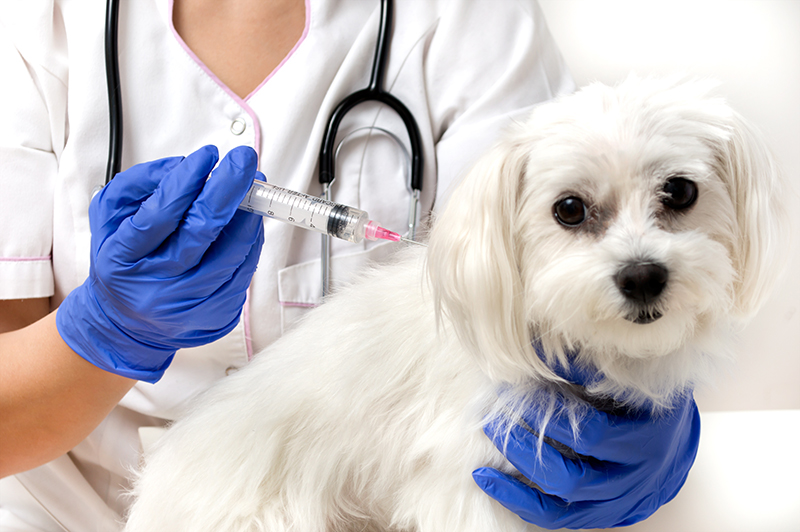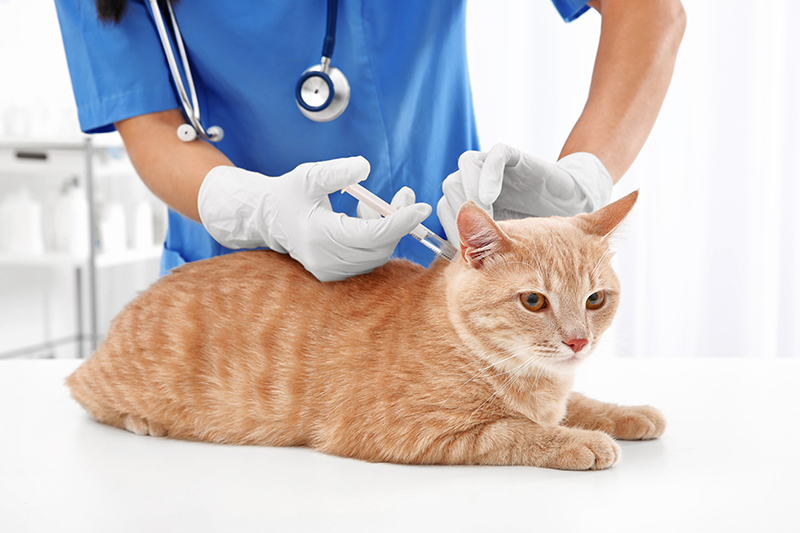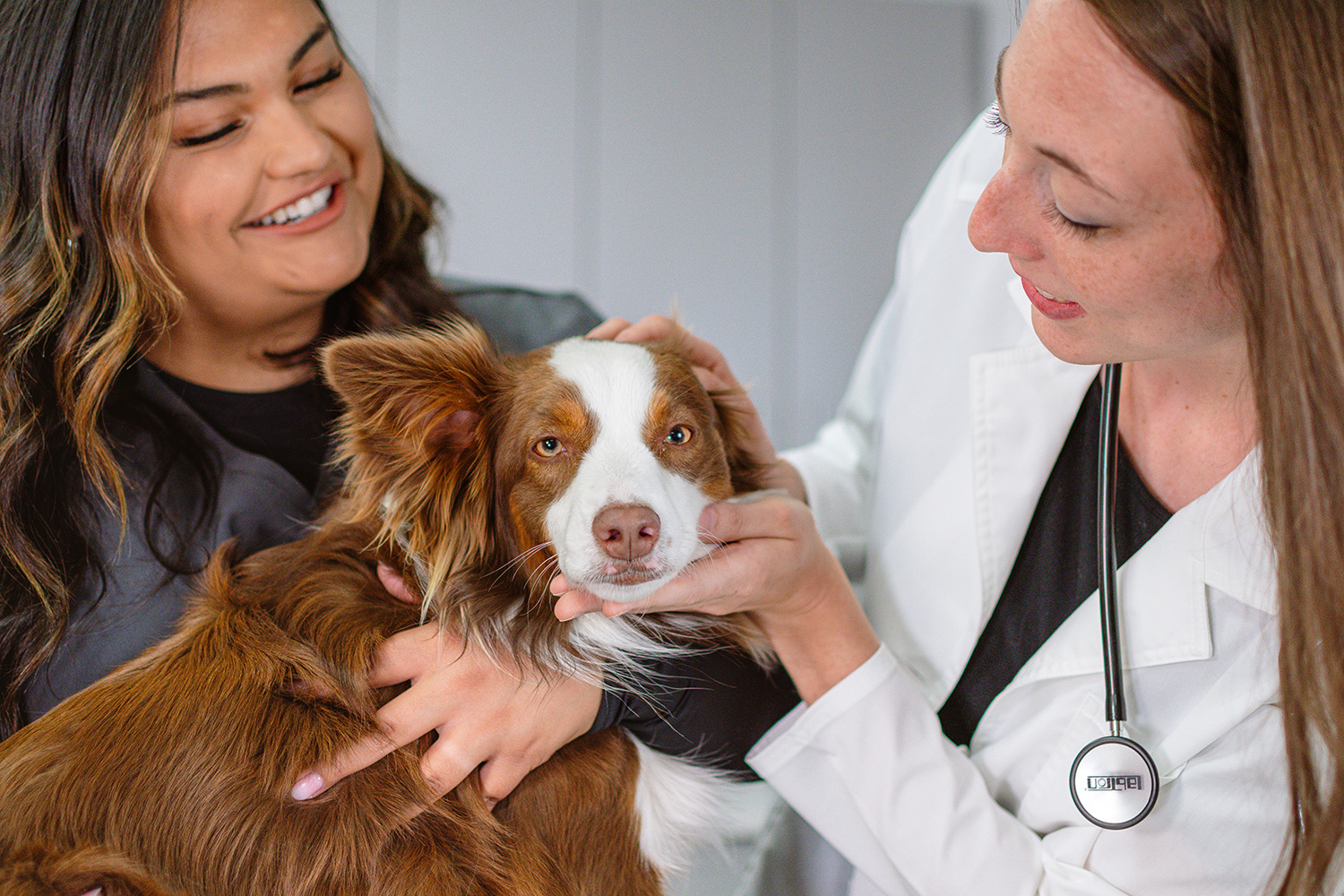Pet Vaccinations: Common Questions Answered by Our Trusted Veterinarian
Answers to commonly asked questions regarding pet vaccinations provided by Dr. Sharon Davis, DVM and in partnership with VIP Petcare.

Best Friends Pet Hotel proudly provides a monthly veterinary clinic service in collaboration with VIP Petcare at select locations. This initiative aligns with our steadfast commitment to delivering top-tier pet care services for our cherished pets and their devoted owners. The VIP Petcare clinics offer a convenient and cost-effective means to ensure the ongoing health and well-being of your beloved companion animals by maintaining their vaccination schedules.
In an effort to offer valuable insights into this vital aspect of pet care, we engaged in an enlightening conversation with Dr. Sharon Davis, DVM, our respected Veterinarian Consultant. In this discussion, Dr. Davis shares her expert advice addressing crucial questions related to the subject of pet vaccinations.
1. Why are vaccinations so important?
The importance of vaccinations in safeguarding the health of your pet and other animals cannot be overstated. Vaccinations play a pivotal role in shielding them from a spectrum of potentially life-threatening diseases. Moreover, the financial burden of vaccinating your pet pales in comparison to the exorbitant costs associated with treating a diseased pet. This proactive measure not only averts unnecessary suffering for your pet but also offers peace of mind for your entire family. Legal mandates, such as the requirement for rabies vaccination, underscore the societal and public health dimension of this practice, as certain diseases are zoonotic and can be transmitted from pets to humans if your unvaccinated pet were to contract them.
2. How do vaccines work?
Vaccines operate by introducing specific components of the target virus to the immune system, thereby priming it to mount a defense. This process allows the immune system to generate antibodies against the virus, although it is essential to note that this response is not immediate; it takes a few weeks for the body to develop these antibodies. Subsequently, if your pet encounters the actual virus, its immune system will promptly recognize the threat and dispatch these antibodies to neutralize the invader before it can infiltrate cells and incite disease.

3. What annual vaccinations do you recommend to pet parents?
The selection of annual vaccinations for your pet is contingent upon a careful consideration of both your and your pet’s lifestyle. Factors such as whether your pet frequents boarding facilities, embarks on woodland adventures, resides in a high-rise apartment with indoor potty pad usage, or serves as a hunting companion all play a pivotal role in determining the most suitable vaccinations. Your trusted veterinarian is an invaluable resource in offering personalized guidance on the vaccinations that best align with your pet’s unique lifestyle.
4. How often should I vaccinate my pet?
The frequency of vaccinations is contingent upon a multitude of factors, including manufacturer guidelines, state regulations, and the evolving lifestyle of your pet. As your pet matures, his needs may evolve, and certain vaccinations that were once essential may no longer be required. State laws governing vaccination intervals can also undergo revisions, with some mandating annual rabies vaccines while others extend the interval to three years. Your veterinarian is adept at tailoring a vaccination schedule to your pet’s specific requirements and your individual circumstances.
5. What happens if I miss a vaccination?
Neglecting a scheduled vaccination leaves your pet vulnerable to the very diseases vaccination aims to prevent. Maintaining up-to-date vaccinations is paramount to your pet’s health. Depending on the duration of the lapse, a missed vaccination may necessitate restarting the vaccination series to ensure your pet’s proper protection. Your veterinarian is well-equipped to provide guidance on rectifying any vaccination gaps.
6. How do I know if my cat or dog is having a bad reaction to a vaccine?
Vaccine reactions, though relatively rare, can occur at any point, particularly when introducing a new vaccination. Vigilance is crucial. It is advisable to monitor your pet for telltale signs of a reaction, such as facial swelling, hives, vomiting, diarrhea, or respiratory distress. If any of these symptoms manifest, prompt veterinary attention is imperative.
7. Are there recommendations for puppies or kittens as it relates to vaccines?
Newborn puppies and kittens inherit a degree of passive immunity from their mothers through placental transfer and colostrum during birth. This passive immunity diminishes over time, necessitating a series of vaccinations to bolster their nascent immune systems as maternal protection wanes. The specific vaccines required for your puppy or kitten are contingent upon their individual lifestyle and risk factors.

8. As it relates to finding a place to vaccinate my pet, what types of things should I look for?
When seeking a location for pet vaccination, it is crucial to prioritize clinics that not only administer vaccines but also conduct thorough examinations. There are instances where underlying medical conditions may contraindicate vaccination, and these issues must be addressed prior to vaccination. Select a venue that you trust, and where open communication with the staff is encouraged, ensuring the best care for your beloved companion.

To learn more about veterinary care and monthly vet clinics (in partnership with VIP Petcare) at your local Best Friends Pet Hotel, visit our Vet Care webpage. Or call your local center with any additional questions.




